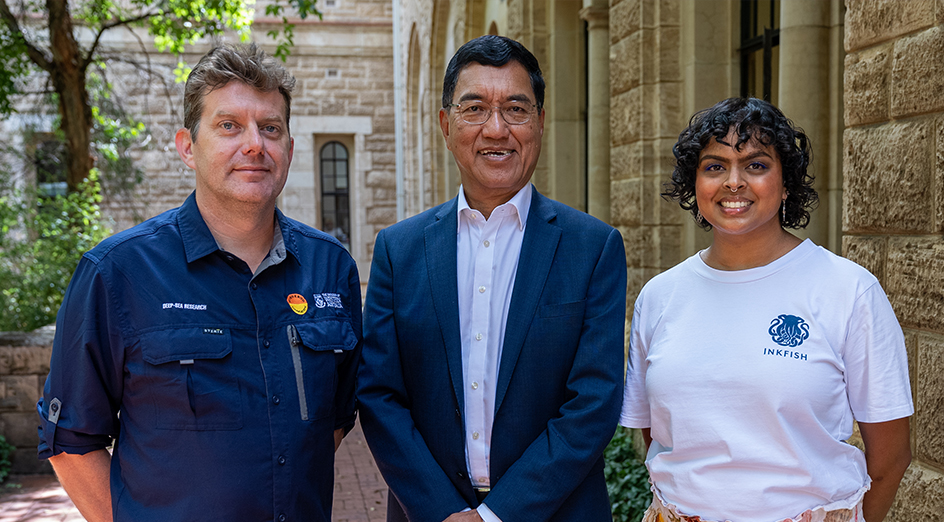Marine research organisation Inkfish has committed to a five-year plan to support vital deep-sea research in partnership with the Minderoo-UWA Deep Sea Research Centre.
“We will use these deep-sea assets to their full potential for exploration and scientific discovery.”Professor Alan Jamieson
The Minderoo-UWA Deep Sea Research Centre specialises in research of the deepest parts of the oceans, known as the hadal zone, where the seafloor plunges from 6km to nearly 11km deep.
The centre’s vision is to overcome the technical challenges of the past and approach marine science at the deepest depths as it would in shallower environments.
Centre director Professor Alan Jamieson will lead the team using Inkfish submersible DSV Limiting Factor, and support vessel DSSV Pressure Drop, recently renamed Bakunawa and Dagon respectively.
Professor Jamieson’s scientific achievements include discovering the deepest fish, jellyfish, octopus and squid ever filmed as well as being part of the team that first identified microplastics at the deepest ocean depth.
He previously helmed scientific expeditions aboard DSV Limiting Factor, acting as chief scientist for the Ring of Fire Expeditions (2019-22) and Five Deeps Expedition (2018-19).


Professor Jamieson is familiar with the submersible and its scientific potential, having participated in 15 dives to some of the deepest places on Earth.
“Through this significant partnership with Inkfish, and the wonderful team we are creating, we will use these deep-sea assets to their full potential for exploration and scientific discovery,” Professor Jamieson said.
“What Inkfish have created is truly unique, and by combining their vision and opportunity, with our experience of recent years, we are confident that the next five years will be a real game changer in deep-sea research.”
UWA Vice-Chancellor Professor Amit Chakma said our oceans were integral to the future of our environment and our understanding of sustainability.
“I am delighted that the support from Inkfish will enable us to explore the true potential hidden in the unknown depths,” Professor Chakma said.
Undertaking up to 20 expeditions over the five-year period, the program will operate worldwide, liaising with international experts and collaborators while engaging with local nations to advance deep-sea research.
The program will use the molecular labs, building space, sample storage and engineering space at the Minderoo-UWA Research Centre.
Support for the program includes funding for the centre to host two tiers of scientists – nine in total, comprising five postdoctoral research scientists and four research assistants, in addition to the existing team.
The new appointments will help broaden the scope of scientific work and maintain a permanent rotational crew of scientists on the state-of-the-art deep submersible support vessel.





































